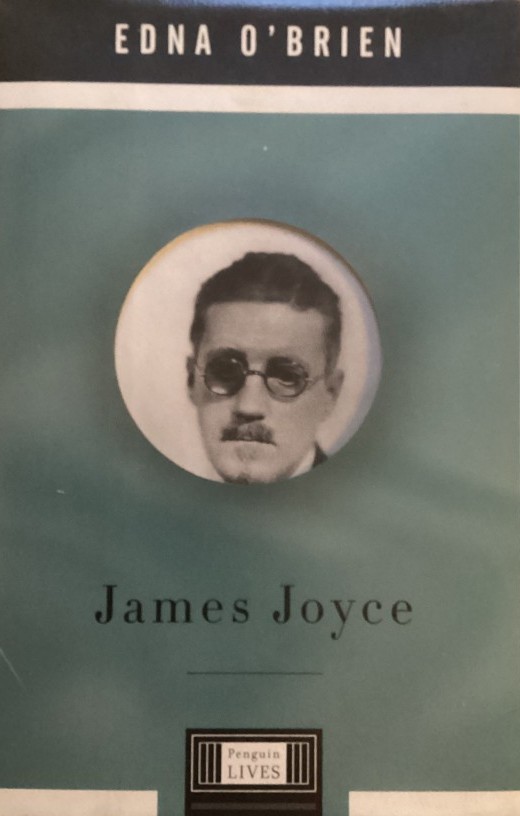Inspiring Older Readers
 posted on 19 Aug 2024
posted on 19 Aug 2024
James Joyce by Edna O’Brien
The recent death of Irish novelist, Edna O’Brien at the ripe old age of 93 reminded me of her appearance at the Cheltenham Literature Festival back in 2020 – one of the first full rooms we’d been in since the end of the Covid lockdowns. She was amazingly robust, indiscreet and bursting with a sort of devilish good humour: she was also very generous when it came to signing the absurdly large bag of her books I’d brought along.
I thought this might just be a good time to read one of them again as a gesture of respect following her death – but which one to go for? It wasn’t that difficult to make my choice because a book I think best captures something of the spirit of the woman I met on that day in Cheltenham isn’t one of her novels but her short and truly delectable and in parts, iconoclastic, portrait of the life and works of her fellow Irish novelist, James Joyce.
Published in 1999 in the Penguin Short Lives series, O’Brien’s affectionate and perceptive portrait of a writer who outraged the Irish cultural and political establishment is packed with the authenticity that only a writer who comes from a very similar set of experiences can bring to it.
These Penguin Lives were meant to be short, sharp introductions to a writer’s work and O’Brien delivers on that score – the key events of Joyce’s life are here but she fairly rattles through them in a series of brief chapters that capture perfectly the way Joyce emerged as a writer but without labouring the details and lacing them all with a wicked humour.
She doesn’t shy away from the notion that Joyce was pretty difficult to like:
“He was notorious in the bars…an arrogant young man in frayed clothes, white rubber shoes and a yachting cap, eager to parry, to dissimulate, to discuss Euclid or Aquinas or Nelly the Whore and to warn adversaries that he would lampoon them in his satirical verses.”
Cleverly, she uses the sort of language that Joyce himself would have deployed – he was a ‘lecher’ she says and “a bullockbefriending bard” – but ultimately she says, despite all this, he is a genius:
“His imagination was meteoric, his mind ceaseless in the accruing of knowledge, words crackling in his head, images crowding in on him ‘like the shades at the entrance to the underworld.’”
Joyce’s family background, his childhood, Ireland itself all fed into this extraordinary imagination – as did the remarkable relationship with Nora Barnacle (a liaison that O’Brien positively relishes exploring). But the really wonderful part of this book is O’Brien’s analysis of Ulysses – which does in comparatively short order what much longer and more complicated analyses fail to do: make it fresh and exciting.
She probably does slightly less well with her overview of Finnegans Wake – but then again and to be fair, who has ever managed to get to grips with that in very few pages?
If you’re coming to Joyce for the first time, this would be an excellent and provocative starting point and if you’re more familiar with the subject, you’ll find some new insights and some real fun to be had here. It’s a warts-and-all portrait of an iconoclastic, Irish genius by an iconoclastic Irish genius – what could be better?
You’ll find copies for well under £10 and I can promise you that its money well spent.
Terry Potter
August 2024